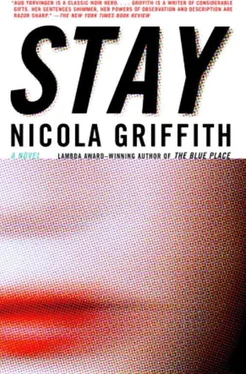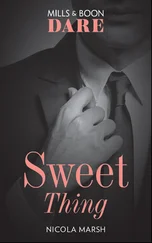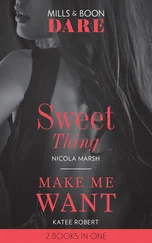It is a few minutes after the doors open in the loft that I drag him out onto the polished floor. He slides easily in his own blood. I am covered in blood, and slick with spittle. He mews a little, then is quiet. I try to think but my brain is still thick and hot and swollen. I rub my forehead, then see my bloody footprints.
I take my shoes off and step onto a rug. That’s better, but I’m not sure why. I stare at the red tracks. Tracks. Hunters.
I strip naked, except for my gloves. I drop my clothes on the bare floor by the body and walk to the bathroom. The shower fitments are sleek and modern, the water pressure strong. I wash carefully, thoroughly; the leather gloves feel odd on my skin; even after I’m clean I keep the water running a long time. I pick a couple of stray hairs from the plughole, get out without turning the water off. In the kitchen I find scissors and plastic grocery bags; I cut the labels off my clothes and put the clothes in the bags and the labels in a little heap on the floor. I have to take my jacket out again to get the tape and photocopies. Photocopies. It takes a moment to open the false front and find the original file, which I put by the cutoff labels, next to the tape and the copies. I line them all up carefully, edge to edge, then find there is a red glove print on the folder. It puzzles me: I can’t make it line up with the tape or the photocopies. I put the photocopies inside the folder and the tape on top. Better. The scissors go back in the kitchen, and I bring back sponges and a towel. I wipe away my footprints, and dry the floor. I go back to the kitchen for a mop and bucket. The walls of the elevator glisten, and the air is thick with the sweet coppery stench of the abattoir: blood, marrow, intestines. I begin to clean it up, then vomit, then have to clean that up, too. I rinse the mop and sponges in the shower, leave it running while I take the mop and sponges back to the kitchen.
I don’t want to stand naked in Karp’s bedroom. I have seen the pictures of the women and men who have done so. There is no choice.
His clothes fit me surprisingly well, but his shoes are a little big. I add another pair of socks and tie the shoelaces tightly.
My gloves are shrinking and uncomfortable. I take a look around the loft—if only I hadn’t taken the time to do this before, I would already have—
No. I didn’t have time for that.
I put the bagged clothes in two more bags, stepped over the bloody thing in the hallway into the elevator, and turned the key. My heart thumped lumpily and I couldn’t breathe quite right. The woman. She had seen me. But she had run, and she hadn’t known where Karp lived: “Yes, on this block,” he’d said, as they turned the corner. If I could take a cab without being seen, I would be safe.
The elevator doors opened and every muscle in my body clamped down hard on the nearest bone: the street heaved with people. A man lay dead or dying twenty feet above my head, and here I was, displayed like a vase in a museum. I couldn’t move. A group of twenty-somethings walked past. One turned to look. His face stretched in shock.
Blood smeared on the elevator wall? Teeth on the floor? If I’d missed something on my cleanup, there was nothing I could do about it now. I jerked one leg forward, then the other, and walked right at him, and his little group burst apart like a school of minnows, and I was through. Three feet past, six.
“Hey!” Twelve feet. “You!” Thirty feet. More shouts. The cutoff whoop of a police siren stopping just as it was about to start; a car braking. Fifty feet. Never run from a scene, never. It’s the first thing they look for. Walk. Eat the ground with your stride, but walk.
“Here!” A woman’s voice. “Over here!” But I didn’t stop, didn’t look back. I moved past people as though they weren’t there, not thinking or planning, just moving. Between one stride and the next, everything changed: unrelated pedestrians suddenly focused, sharpened, tightened into a crowd. Heads turned and mouths opened, and a hundred hands lifted to point. My mind did a terrifying thing: it shut down. I bolted.
Lights. People. Air harsh, like sand in my lungs. Fingers curled around plastic bag handles. Pavement hard hard hard under my feet. More lights. Darker alley. Fewer people. Breath tearing in and out, in and out. Another street. More people. Yellow. Open, in, red upholstery.
“Where to?”
A cab. I was in a cab. “Drive.”
“That’s what I do. But where to, lady?”
I couldn’t think. “That way.” I pointed at random. He drove. The bags were heavy in my hand. Wet and heavy. “Let me out.” I gave him a ten and climbed out, walked. Kept walking, mindlessly. Passed a street sign. King Street. I stopped at a traffic light. A cab stopped at the same time. I looked inside. The driver raised his eyebrows. I nodded, or my head jerked, and I climbed in. “East,” I said, then, “That way.”
“Not good that way,” he said. “Trouble. Police trouble.”
I was remembering the voice, earlier, shouting “Here! Over here!” A woman’s voice. The woman who had been with Geordie? But she’d said “Here,” not “There.” Then the sound of a police car, the cutoff whoop—not a chasing-the-perp whoop, more a clear-the-crowd-from-the-scene whoop, one I’d heard a hundred times. She had called them, then. It would take a few minutes for them to understand what was going on, to put it all together with whatever that crowd had seen in the elevator. Had she described me? Had that group outside the elevator?
A street sign said West Houston. I knew where I was. “Go north. Tompkins Square Park.”
I could do this. Dump the clothes at the park, take another cab to the hotel. Change. Catch the plane. Yes. I could do this.
pupa
pupa (from pūpa , L. for girl, or doll)
1. an insect in the third stage of homometabolous metamorphosis… the development from pupa to imago often involves considerable destruction of larval tissue…
It was four in the morning when I pulled into the clearing, set the hand brake, and climbed out of the rented Neon. Strange, to stand on grass again. In the starlight, the Neon’s paintwork glistened, like mercury. The cold autumn air smelled different; it belonged to the world of someone I no longer knew.
A light flicked on in the trailer—yellow light, only a low-watt lamp, but I turned away. I couldn’t see the trees, but I could hear them: papery and tired in the softly stirring air.
After a minute brighter light spilled from the doorway, casting my shadow ten feet long into the dark.
“Aud?” I kept my back to her. “Aud?” Closer now. “Did you get it?”
I turned, and Tammy, in half-buttoned shirt, jeans, and no shoes, stopped dead. “You’re wearing his pants.”
It took a great effort to speak. “Did you ever mention me—my name, what I looked like, anything—to him?”
She shook her head.
“You’re sure?”
“I’m sure.” She folded her arms against the cold. “Why are you wearing his clothes?”
I didn’t have the strength to speak.
“Did you get the tape?”
I reached into the car, to the tape on the top of the folder of original and photocopied documents, and tossed it to her. She unfolded her arms at the last moment to catch it, looked at the label, at me.
“Did you …?”
“It’s the right tape.”
She cradled it in her folded arms, holding it, protecting herself from it at the same time. She took another step towards me, peering at my sweater. “That’s not his. He never wore black. And it’s all wet, what—” She jerked back. “It stinks.”
Читать дальше












